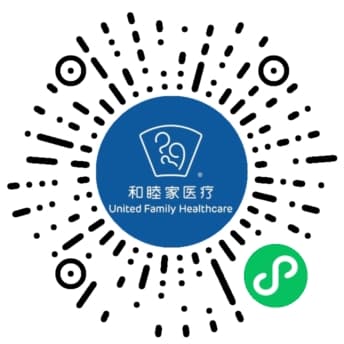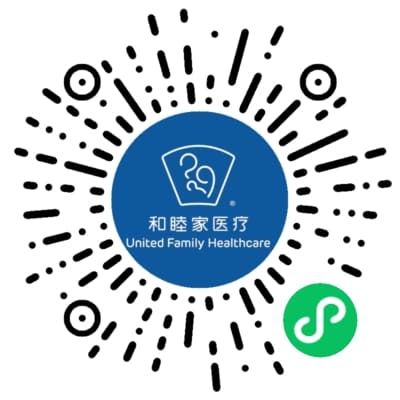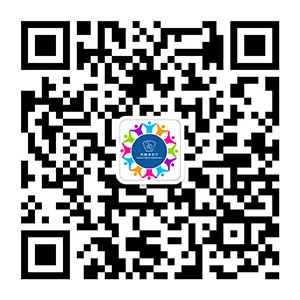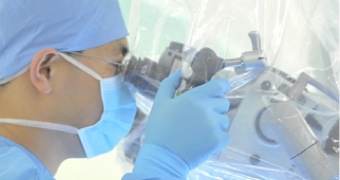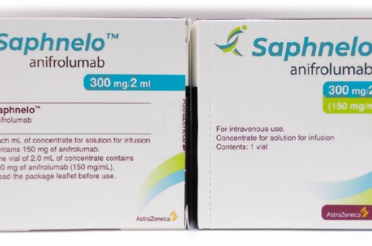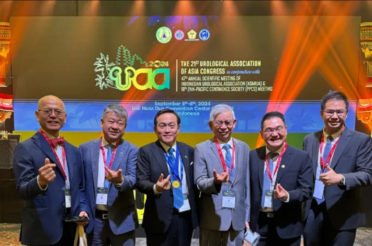On May 11, 2019, Guangzhou United Family Hospital (GZU) successfully held a seminar on child neurology and behavior. Dr. Alan Dudley Mease from the University of Arkansas, Professor Yu Li from Guangzhou First People’s Hospital, Professor Zou Xiaobing from the Third Affiliated Hospital of Sun Yat-sen University, Professor Zhai Qiongxiang from Guangdong Provincial People’s Hospital, Professor Luo Xiangyang from Sun Yat-sen Memorial Hospital affiliated to Sun Yat-sen University, Mr. Chen Huihong from Guangzhou Chenhui Education Development Co., Ltd., Dr. Liu Dihui, Dr. Pu Zhengzhang, and Dr. Alfred Chambers from Guangzhou United Family Hospital all attended the seminar.
The eight experts shared their experience and industry insights about advanced technologies and theories related to child neurology and behavior with more than 50 attending pediatricians from all over China.
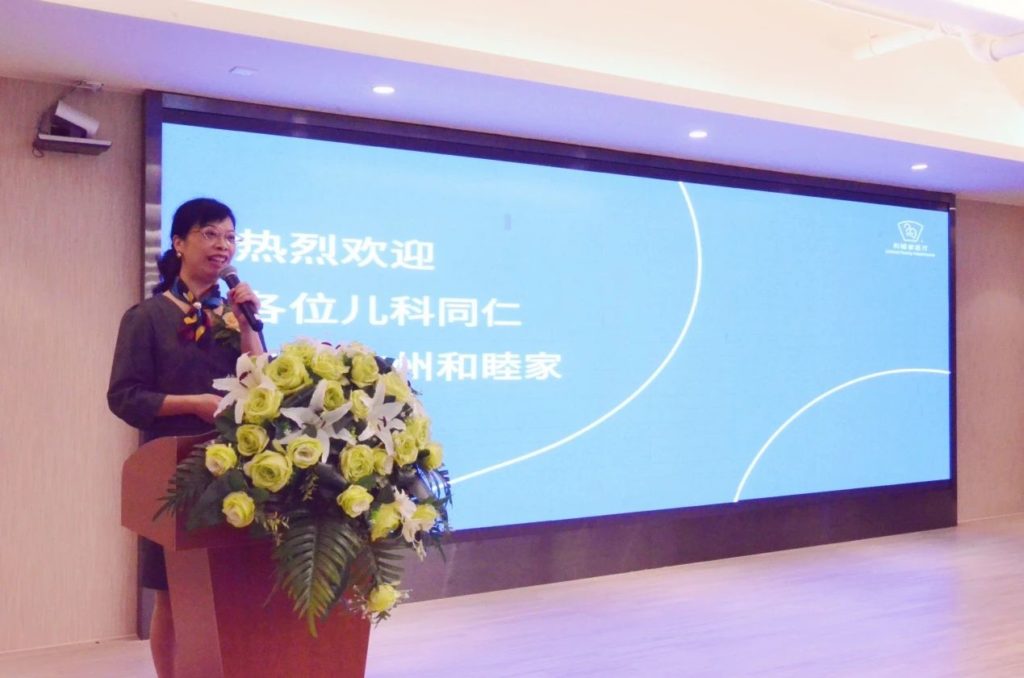
At the seminar, Dr. Liu Dihui, Chair of the Department of Pediatrics in Guangzhou United Family Hospital, shared the management model of GZU which combines advanced western theories and local market conditions, as well as the hospital’s quality-oriented, patient-centered philosophy, with emphasis on the service model of the GUFH pediatrics department and the importance of pediatrics.
Professor Yu Li, the head of the pediatrics department of Guangzhou First People’s Hospital, deputy director of the Guangzhou Pediatrics Association (a branch of the Chinese Medical Association), and a member of the International Pediatric Nephrology Association (IPNA), shared his experience and deep knowledge of enuresis in children. Nocturnal enuresis is a very common health problem among children, with approximately ten percent of 6-year-old children wetting the bed three times or more per week.
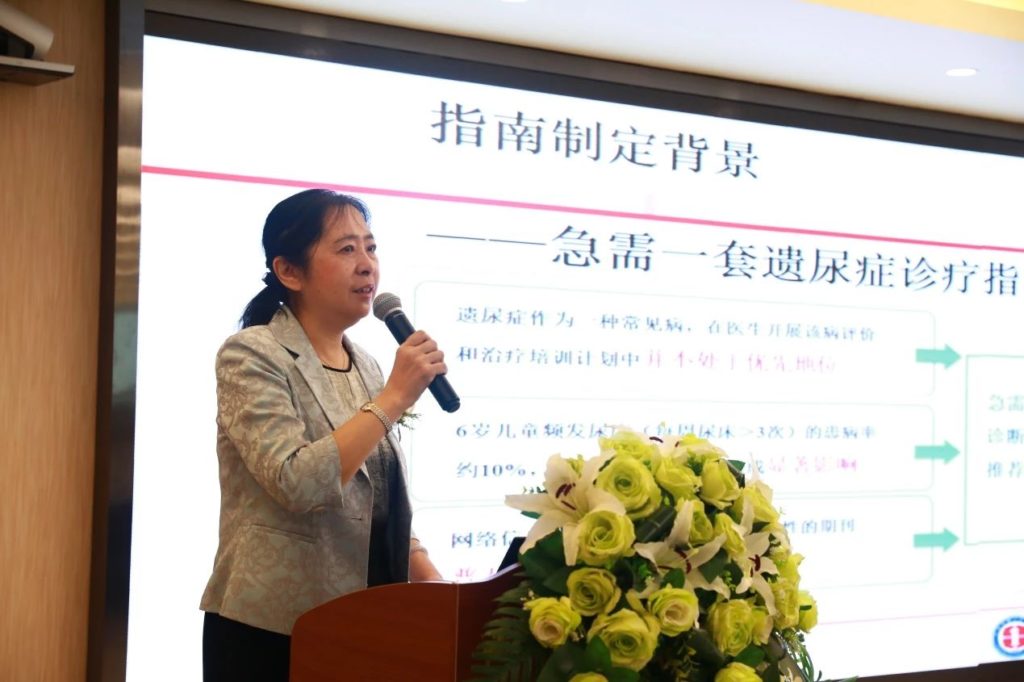
In 2012, the International Children’s Continence Society (ICCS) published practical guidelines for enuresis treatment. The Chinese Child Enuresis Management Collaborative Group has been set up with the view of standardizing treatment and management of enuresis in China. The group published the Practical Consensus Guidelines for the Management of Monosymptomatic Enuresis in 2014. Professor Yu explained the causes, diagnosis, and treatment practices of enuresis in detail based on this consensus guideline.
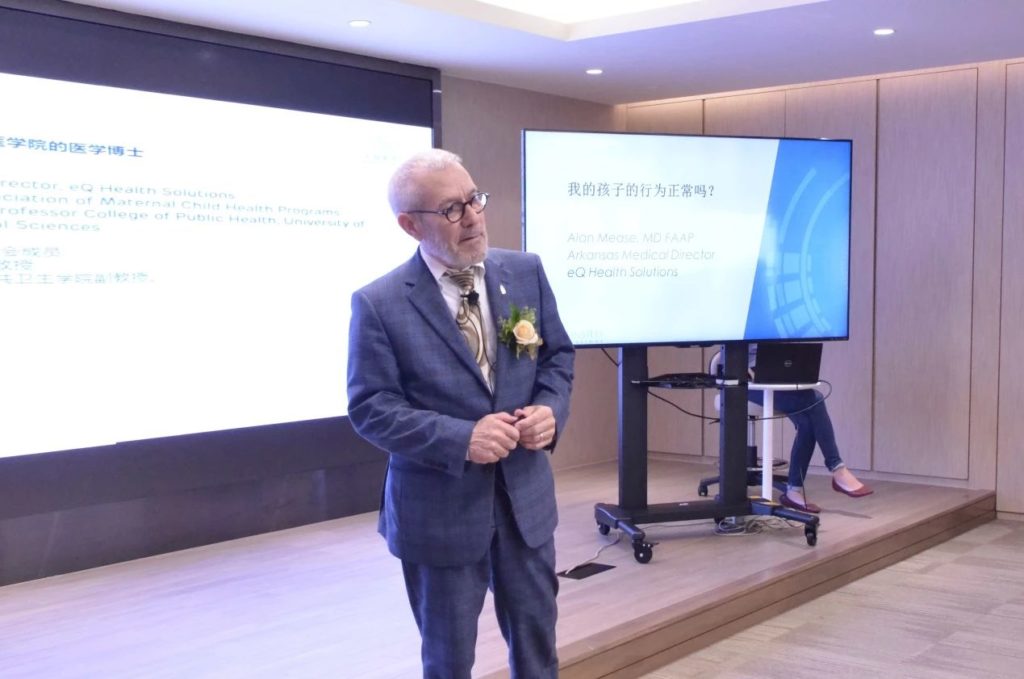
Dr. Alan Dudley Mease, former Medical Director for the Arkansas Department of Health and professor at the Fay W. Boozman College of Public Health at the University of Arkansas, interpreted clinical data on child and adolescent behavioral disorder in the United States and analyzed the causes of such disorders. One out of six American children aged 2-8 years (17.4%) are diagnosed with mental, behavioral, or developmental disorders, and there is an upward trend in this data. Dr. Mease analyzed the causes of behavioral and psychological problems in children and adolescents from social, family, and neurobiological perspectives and provided an in-depth understanding of the diagnostic criteria. The experts present engaged in a heated debate about the differences in data between Chinese and American children, sparking a passionate exchange of views between Chinese and Western medical circles.
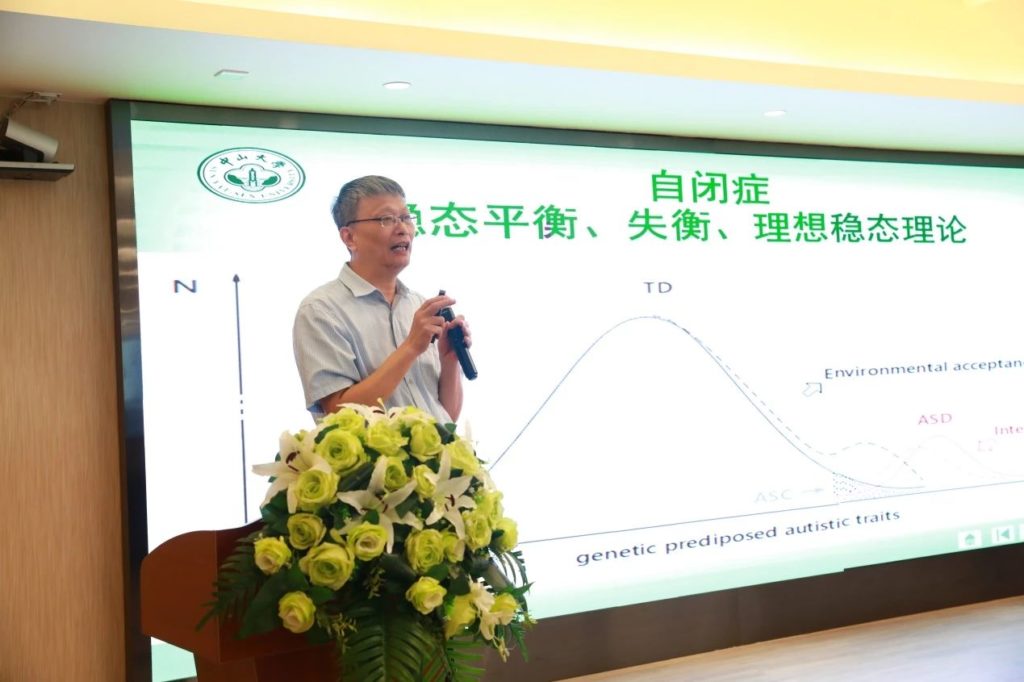
The seminar reached its climax when Professor Zou Xiaobing, director of the Child Developmental and Behavior Center at the Third Affiliated Hospital of Sun Yat-Sen University, was introduced. Professor Zou is a famous child development and behavior expert and the founder of the first specialized institution for child developmental disorders in Guangdong Province. He gave a wonderful speech on autism and diagnostic criteria of autism. Professor Zou proposed a behavioral therapy, structured framework, and relations (BSR) solution for the treatment of autism. This approach employs behavioral intervention methods, uses stimuli that will attract a child’s interest, and engages children through activities that children enjoy. It aims to help children with autism to improve social communication skills and emotional control under a highly organized and structured framework, while giving consideration to cognitive, language, motor skills, self-care, behavior management, and perceptual skills. It requires collaboration of medical institutions, educational institutions, and families. The goal is to prompt children to actively participate in social interactions by using stimuli that will attract a child’s interest and try to help them cultivate self-care skills so they can live independently after growing up.
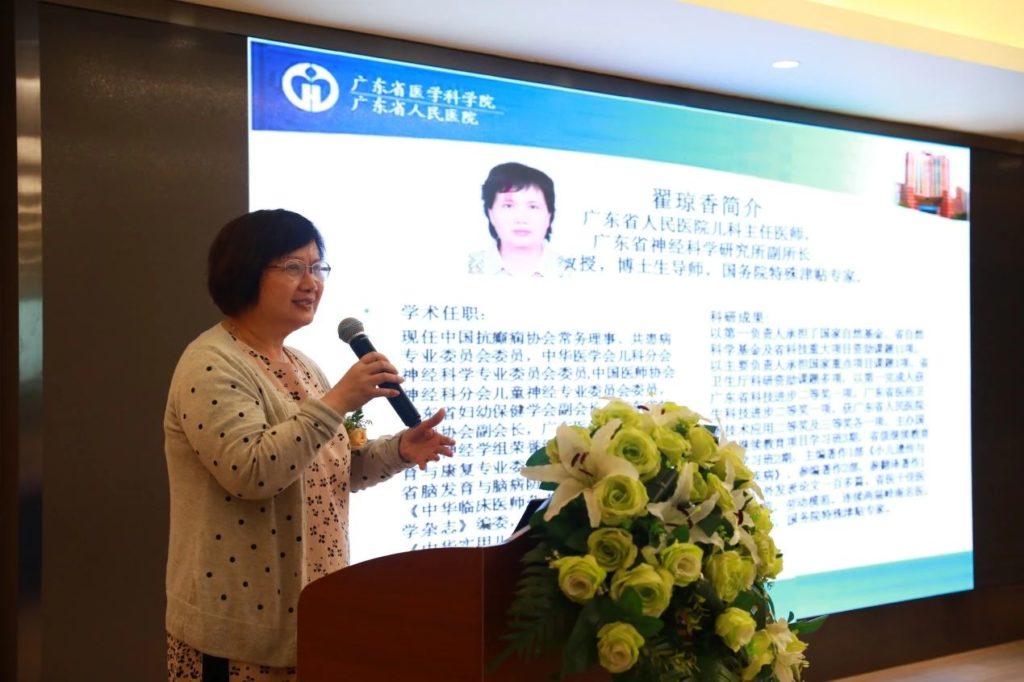
Professor Zhai Qiongxiang, director of the pediatric neurology department in Guangdong Provincial People’s Hospital, deputy director of Guangdong Institute of Neuroscience, and a Member of the Standing Committee of the China Association against Epilepsy, gave a speech on the diagnosis and treatment of tic disorders, analyzing the characteristics, diagnosis, and treatment of tic disorders.
Professor Zhai pointed out that gamma-aminobutyric acid (GABA), dopamine, and glutamate are the main neurotransmitters involved in tics and, among the three types of tic disorders, Tourette’s Syndrome has the highest prevalence of comorbidities. Professor Zhai stressed that doctors should analyze patients’ medical history and ensure early recognition of comorbidities in the diagnosis of tic disorders. Last but not least, she emphasized the effectiveness of cognitive-behavioral therapy plus pharmacotherapy, and pointed out that different medications should be chosen for different comorbidities.
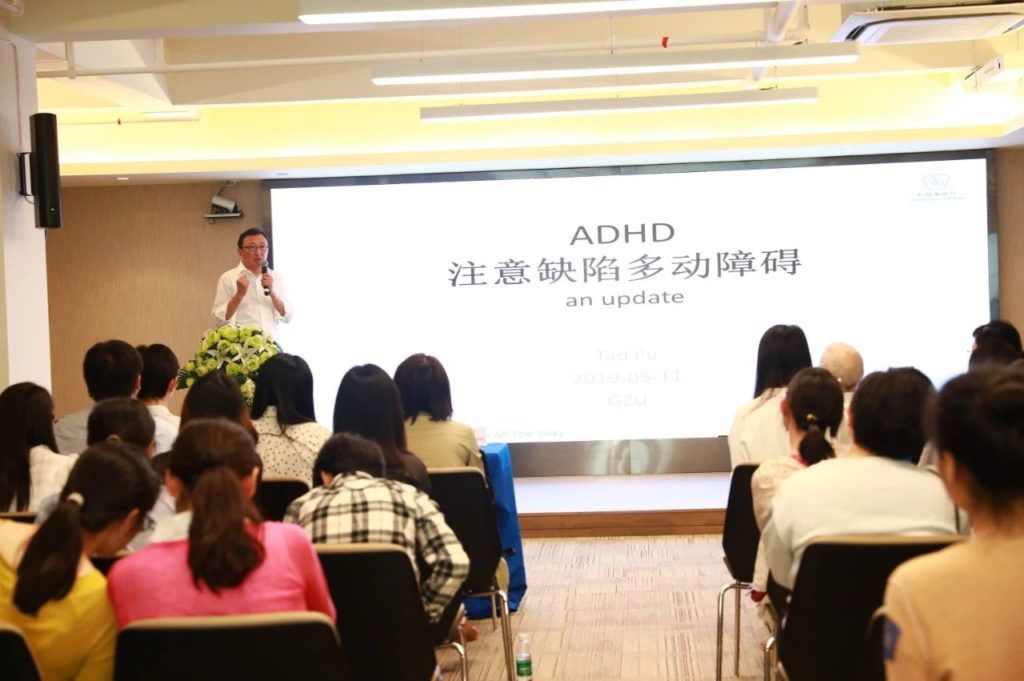
Dr. Pu Zhengzhang, child psychiatrist at Guangzhou United Family Hospital and member of the American Academy of Child and Adolescent Psychiatry (AACAP) shared his experience and knowledge of attention deficit hyperactivity disorder (ADHD) in children. ADHD is the most common neurobehavioral disorder in children and there is an upward trend in the prevalence of ADHD in children. Dr. Pu explained the symptoms and diagnostic criteria of ADHD from various perspectives, and emphasized the important role of teachers in the early recognition and follow-up of this disease. He also shed light on how to effectively held children with ADHD to lead a better life through a combination of pharmacotherapy, behavioral therapy, family-based training, and interventions by teachers.
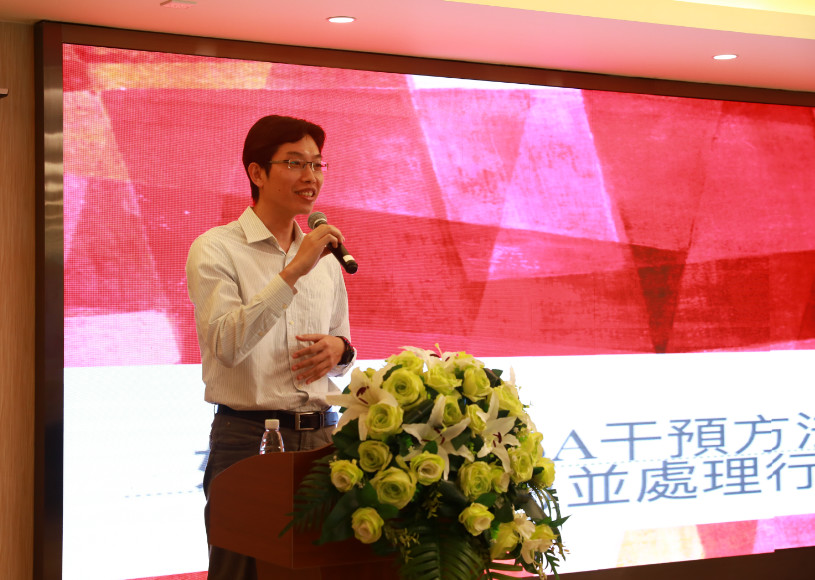
Chen Huihong, supervisor of Chenhui Education, has many years of experience in supervision of ABA therapies. He focused on how to employ Applied Behavior Analysis (ABA) therapy to improve children’s capabilities and help children with behavior challenges. He demonstrated the positive impact of ABA therapy on children with autism through videos and case studies.
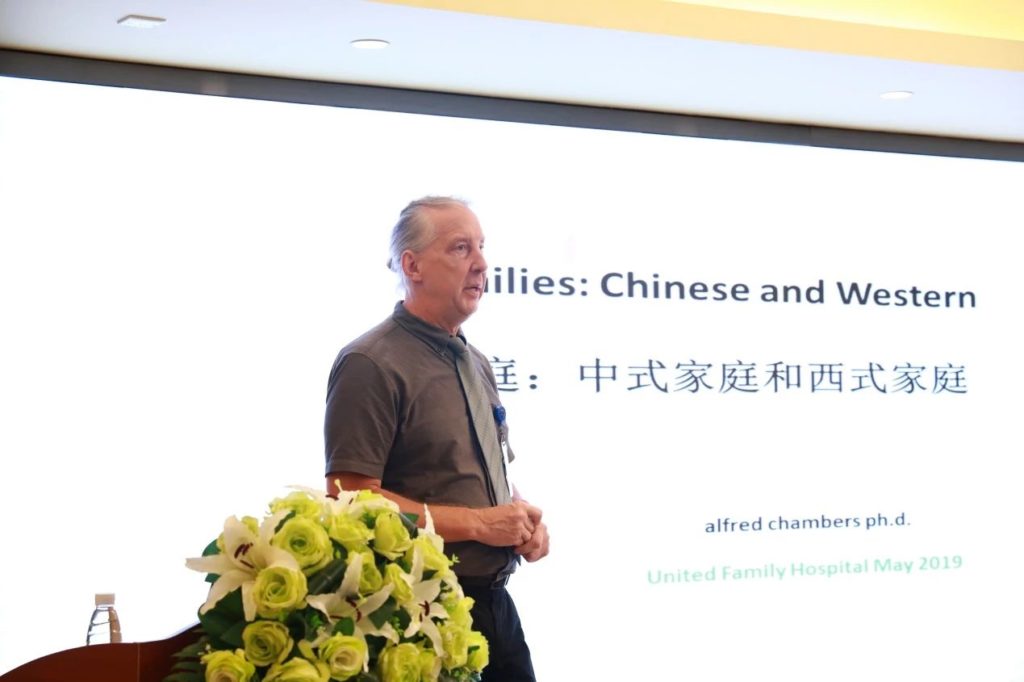
Dr. Alfred Chambers, Section Chief of the Department of Mental Health of Guangzhou United Family Hospital, who participated as trauma counselor in the handling of many crises, including the 2002 Bali bombings, offered a unique perspective on the impact of the different behaviors of Chinese and western families on children’s mental and behavioral health, provided advice on parenting and communication with children, and introduced effective ways to handle childhood behavior problems. He urged parents to be tolerant and open-minded when dealing with children and to make sure that children know they are loved.
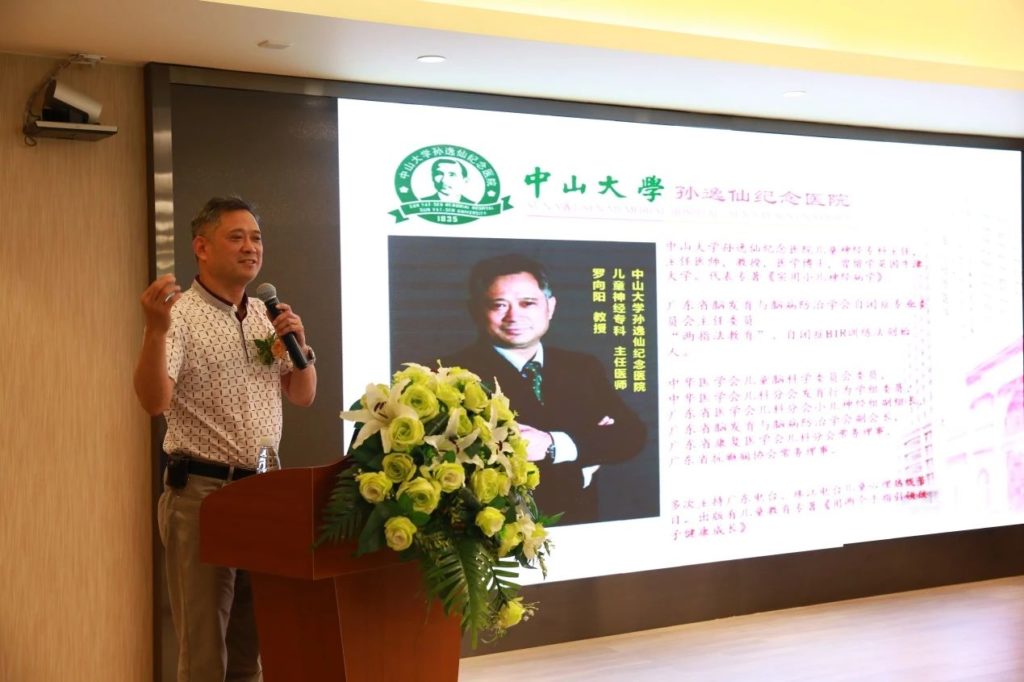
Professor Luo Xiangyang, director of the pediatric neurology department, Sun Yat-sen Memorial Hospital affiliated to Sun Yat-sen University and founder of the “Two Fingers” education approach and BTR therapy for autism, discussed pharmacotherapy for conditions comorbid to autism spectrum disorders. He analyzed the effects and applications of neuromodulation drugs, antidepressants, cognition enhancing drugs, and nootropics, and presented his viewpoint that the symptoms of autism can be more effectively addressed by employing pharmacotherapy to treat comorbidities.
Highlights
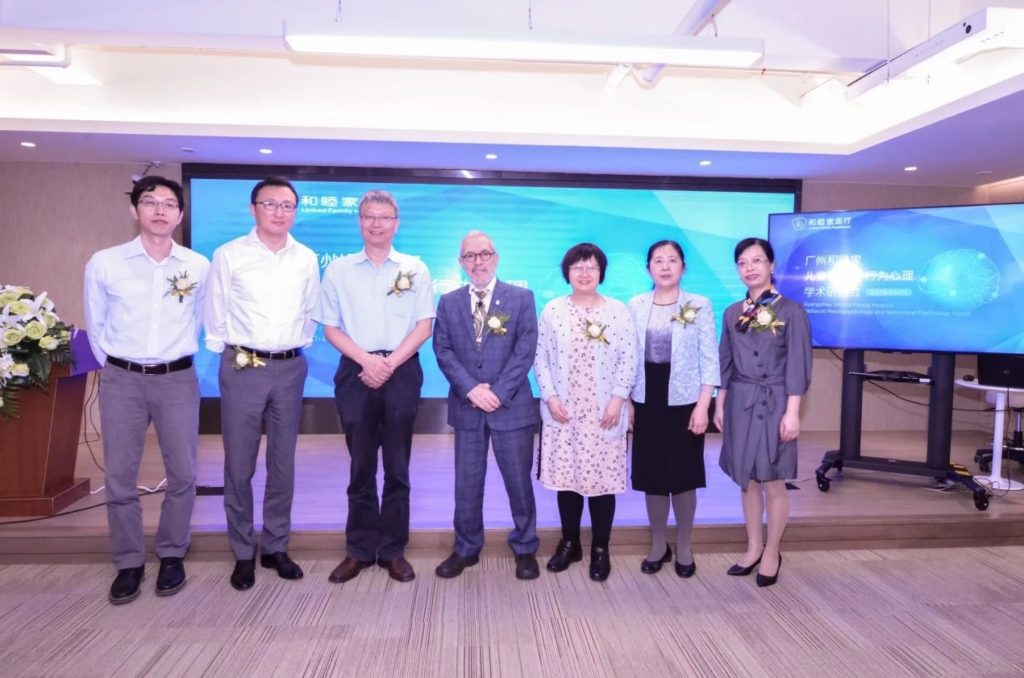
Chinese and foreign pediatric experts meet to share research findings
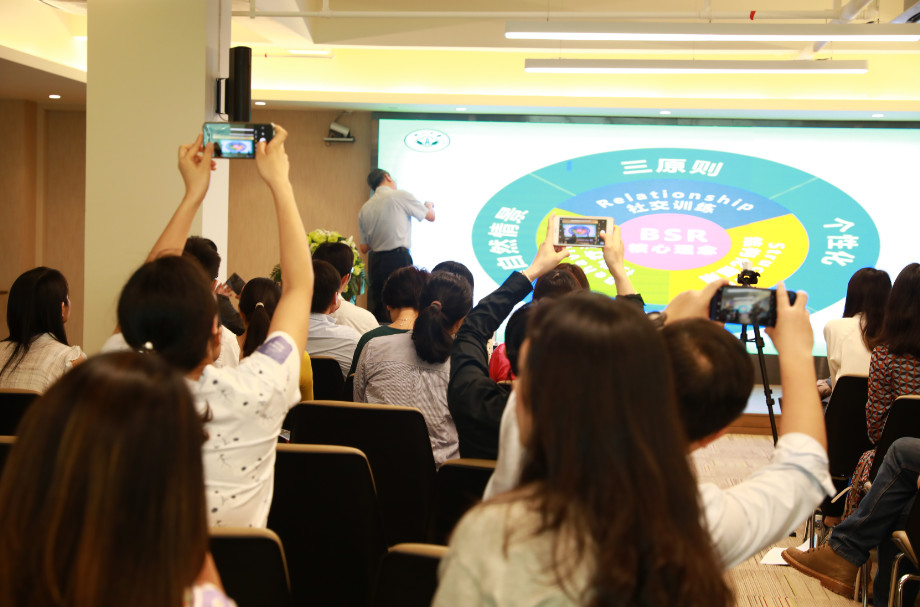
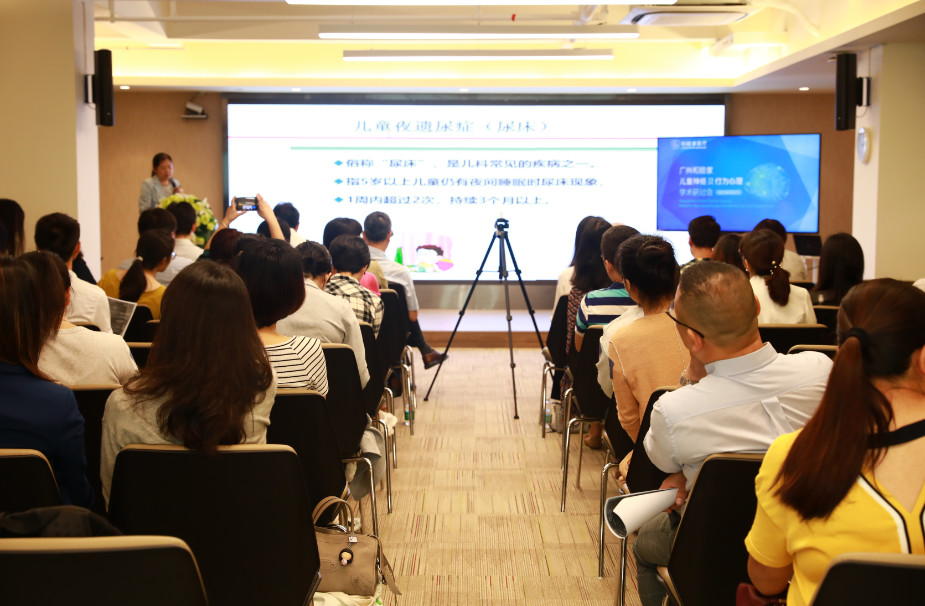
Pediatricians meet to exchange the latest industrial insights
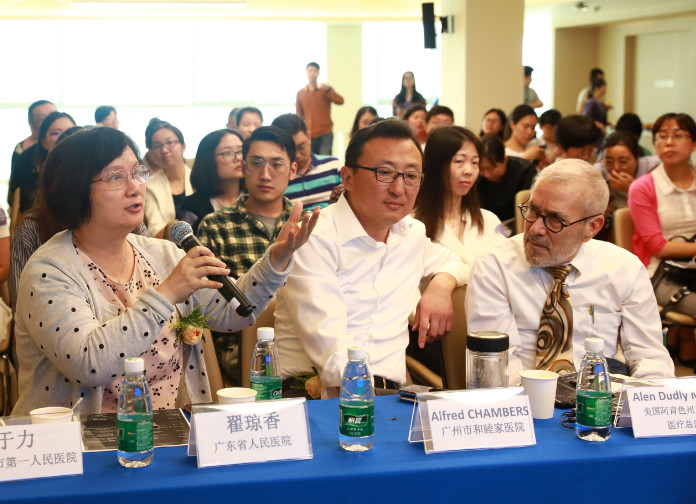
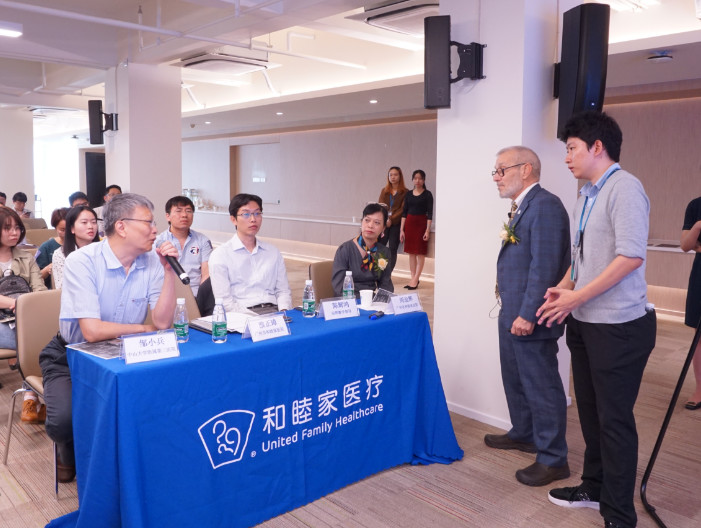
Experts and scholars are engaged in in-depth discussions of related topics
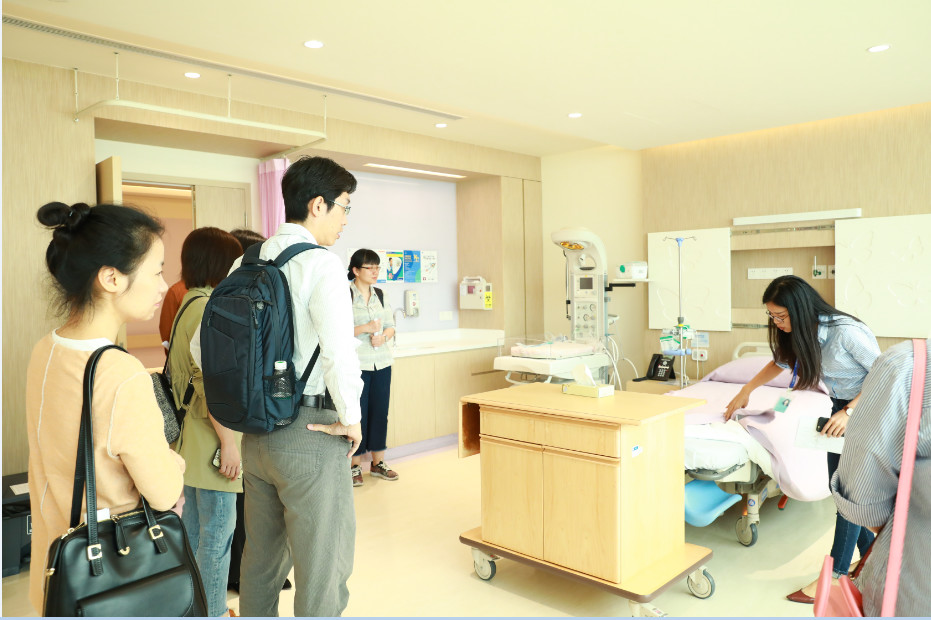
Doctors from around the world visited the integrated delivery and postnatal care room in GZU

